
Black-Crowned Night Herons
August 3rd, 2009
The Night Herons at Mud Lake have fledged their young, and both adults and young are becoming a common sight. This one is molting, I think, thus the somewhat dishevelled appearance.

1680x1050 wallpaper
Carrying lunch, maybe a catfish:

1680x1050 wallpaper

1680x1050 wallpaper
A handsome adult. This is certainly the most classic Night Heron shot I've ever taken--a much more typical shape and pose than in the one pictured here.
Things Best Not Messed With
August 2nd, 2009

1680x1050 wallpaper
Bald-Faced Hornet in a milkweed plant.
July 30th??
July 30th, 2009
Unlikely as it seems, July 30th and songbird fall migration is underway!
There were flocks of them on the ridge. Umpteen Yellow Warblers, Warbling Vireos and Cedar Waxwings, a few Eastern Phoebes, an adult male Yellow-Rumped Warbler, a Nashville Warbler, and last but definitely not least, a juvenile Canada Warbler (pictured below). That's a new species for me.
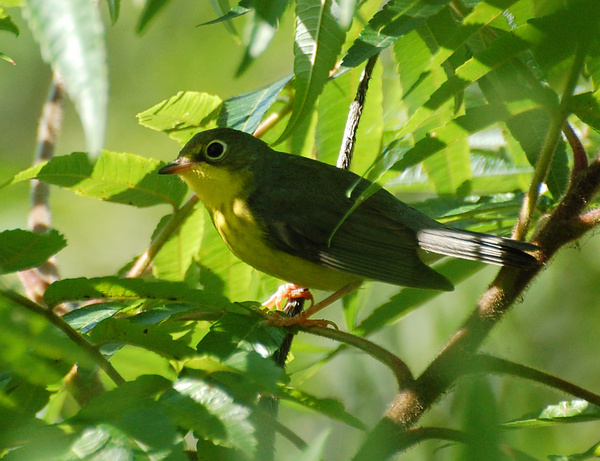
I also got a good Cedar Waxwing picture:
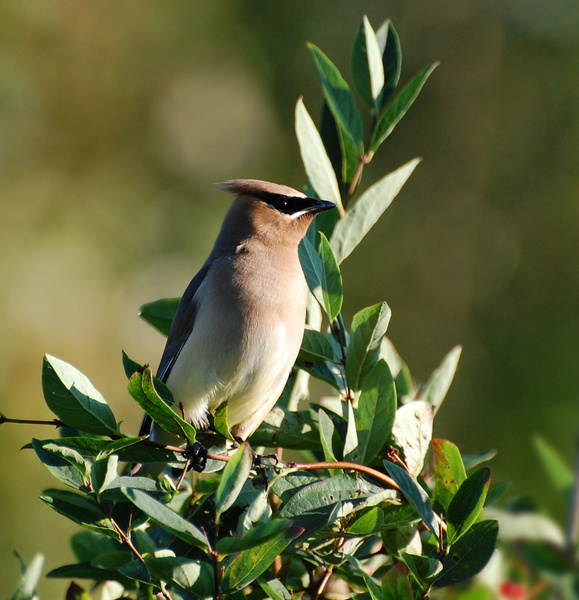
And this cutie of a Wood Duck duckling:
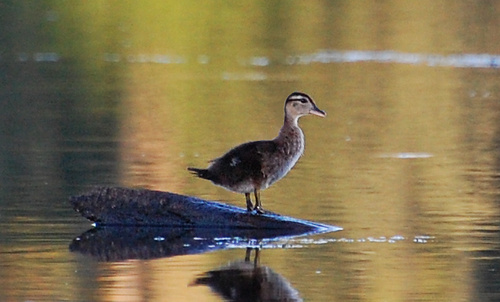
Wildflowers
July 29th, 2009

Daisy Fleabane

Goldenrod

Red Clover, wallpaper available
Peaceful Wallpapers
July 27th, 2009

This female Mallard seemed rather satisfied with life. That's one of her nearly-grown young behind her and to the left. This was in a shallow, slow-flowing part of the Deschenes Rapids, a popular nursery area for both Mallards and Wood Ducks.

Great Blue Heron at Dominion Arboretum.

1680x1050 wallpaper
Another view of the Brant at Andrew Haydon Park, looking meditative.
My backlog of photos is dwindling. I would like Ottawa to please stop thunderstorming all the time so I can get out and take some more. After all, fall migration is coming!
Nothing To Hide
July 23rd, 2009

1680x1050 wallpaper
This is a wildflower called Yellow Goat's Beard. It closes around noon (and on cloudy days), which explains, I guess, why it took me so long to see my first one :-)
A Brant at Andrew Haydon Park
July 19th, 2009
I saw my first-ever Brant goose at Andrew Haydon Park today. This is an arctic-breeding goose and it's highly unusual for one to be in Ottawa in summer. He's been feeding on the park lawn along with Canada Geese (his close relatives) for about a week now.
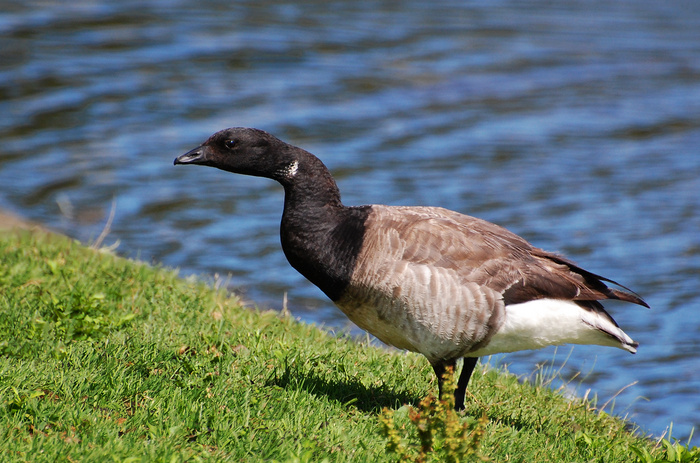
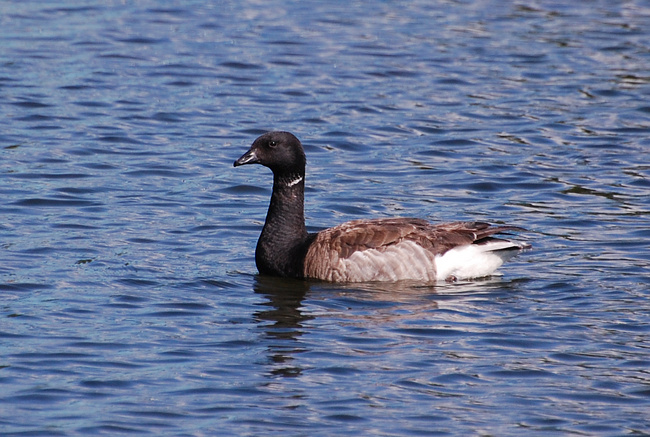
Comparison with Canada Goose:
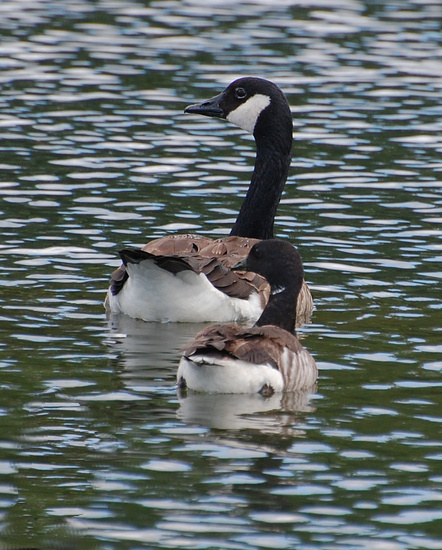
He was playing "follow the leader" with the Canada Geese, which made him, probably, easier to approach than he normally would be. When they went into the water, he went into the water. When they came onto land, he came onto land. If they acted like something was okay, he said, "well, um, if you guys say so." And about the only thing the Canada Geese at AHP don't consider "okay" is dogs.
I spent the afternoon photographing him, not so much because Brant are intrinsically glamorous, as that the opportunity to photograph one so close-up might not come around again for years, if ever. As I was winding down, another photographer showed up looking for him, so I pointed him out to her where he was cleverly hiding himself amidst a raft of mallards. When I left about 40 minutes later, she was still crouched on the grass snapping shots.
I always enjoy finding people as fanatic as I am.
Quebec Cottage Photos
July 16th, 2009
I recently stayed the weekend at a friend's cottage in Quebec, not far from the Gatineau, where I was treated to loon calls on a pristine mountain lake, beautiful but difficult-to-photograph warblers, and other avian treats. Here are some of the pictures I did get:
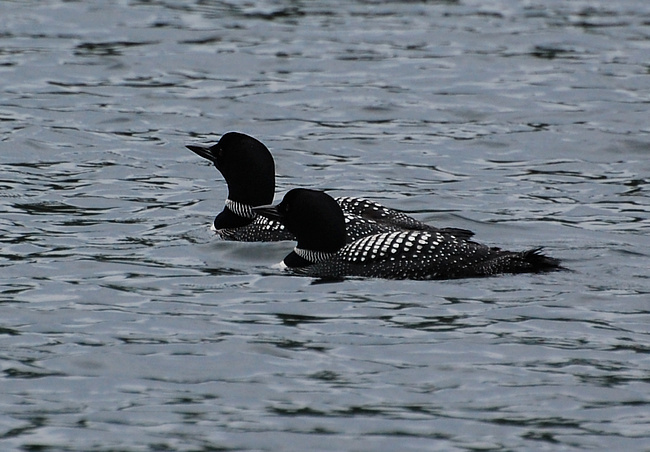
1680x1050 wallpaper
The lake's resident loon pair. They swam surprisingly close to the dock. Due to the overcast lighting they came out monochrome, but as birds go, Common Loons work better in monochrome than most.
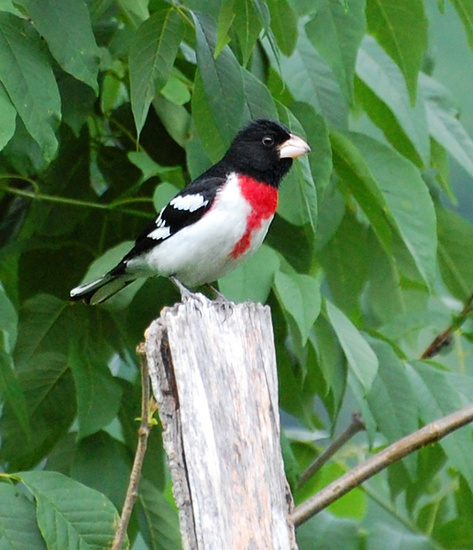
The Rose-Breasted Grosbeak was one of my early thrills as a birder. I saw one in spring migration by the Rideau River in 2007, and he, along with the orioles, was what convinced me to buy binoculars and a field guide. And as with the orioles, it still amazes me that a bird this beautiful breeds in Canada, when it looks like it belongs in the tropics! (In fact Rose-Breasted Grosbeaks do belong in the tropics, roughly eight months out of the year.) This one was actually perched right beside someone's cottage.
My favorite subjects of the weekend were the Common Merganser family, who shared the lake with the loon pair. Unlike with loons, duck fathers usually don't do any child-rearing, so it was just the mother and the ducklings (merglings?) They swam close to shore on my last day. These fish-eating ducks show up each year on Dow's Lake in spring and fall migration, and on the Rideau River in winter, and I'd seen them other times and places as well, but the one way I'd never seen them before is with young!
They were backlit at first...

One or two of the ducklings occasionally rode on their mother's back:

Then they swam into better light.

1680x1050 wallpaper
Adult males look very different from females and young. Here are some photos I posted of them back in March.
Gannet-o-rama
July 12th, 2009
More Northern Gannet pictures from our outing to Bonaventure Island. (First set here, with stories.) These are the last of my Gaspé photos.

1680x1050 wallpaper


1680x1050 wallpaper

1680x1050 wallpaper
( More )
The Auks of Gaspé
July 11th, 2009
Auks are the north-hemisphere analogue to penguins--except that auks can fly, although not too well! Like penguins, their favorite place to be is in the ocean, where they chase after fish underwater. Gaspé peninsula is a great place to see them.
The first three photos are of Black Guillemots, which were the easiest of the auks to photograph. They often swam right next to the pier.
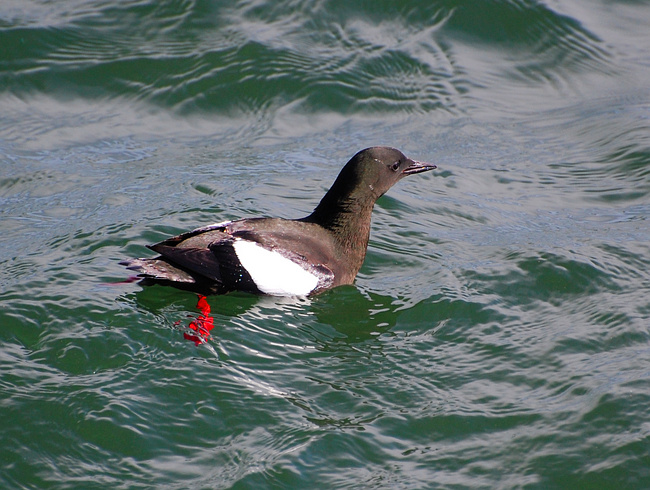
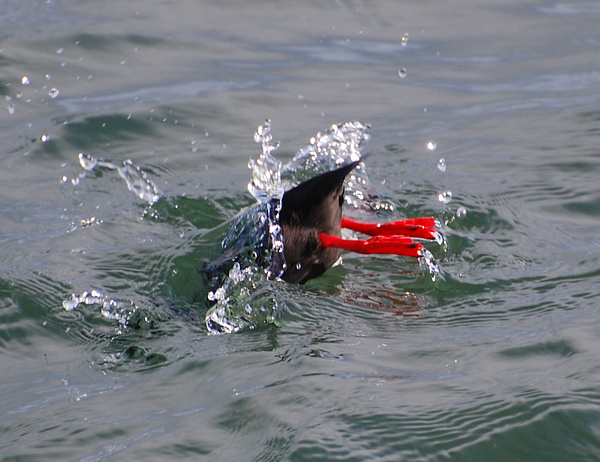
Colors unedited--guillemot feet are quite the feet!
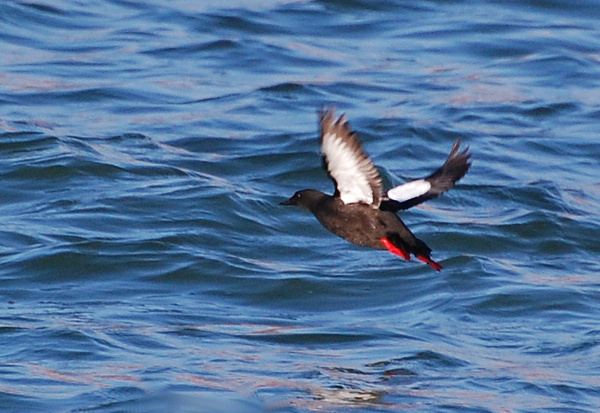
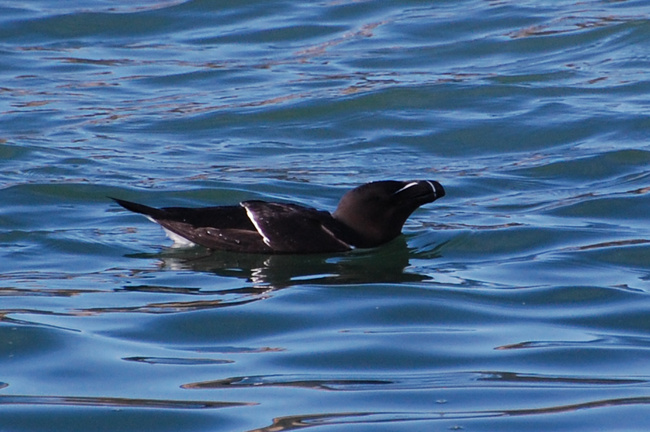
The Razorbills had a habit of catching fish that looked way too big for them, then sitting there, looking around as if to say, "now what?" This one finally flew off with it still flopping in his beak.
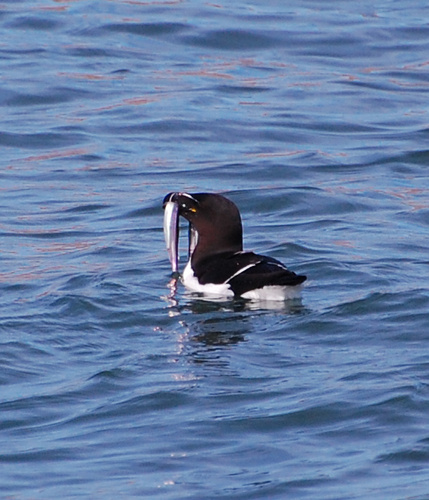
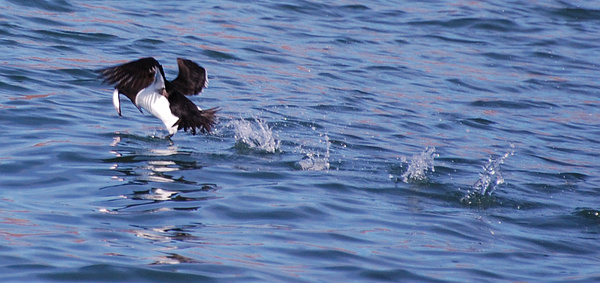
Common Murres were the most difficult of the three auk species to photograph. They never came anywhere near shore. Michael managed to get this one out on open ocean during a whale-watching tour:
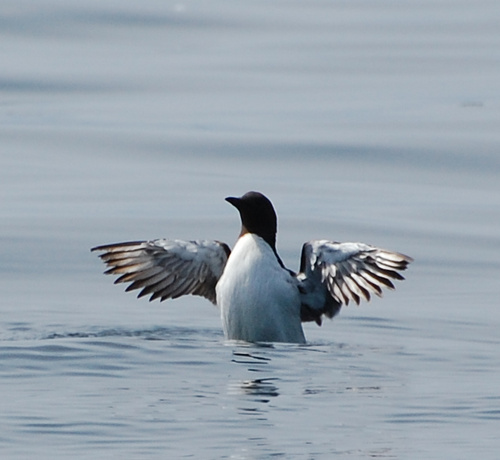
The other way to see Common Murres, in abundance, is to find a colony. Generally the only way to do that is by boat, since they breed on sea cliffs. Here's a snapshot. I'm not going to bother providing a thumbnail as really the only way to see them is at full-size--the link is to a 1680x1050 image. You can also see a few nesting kittiwakes in this picture.
|
